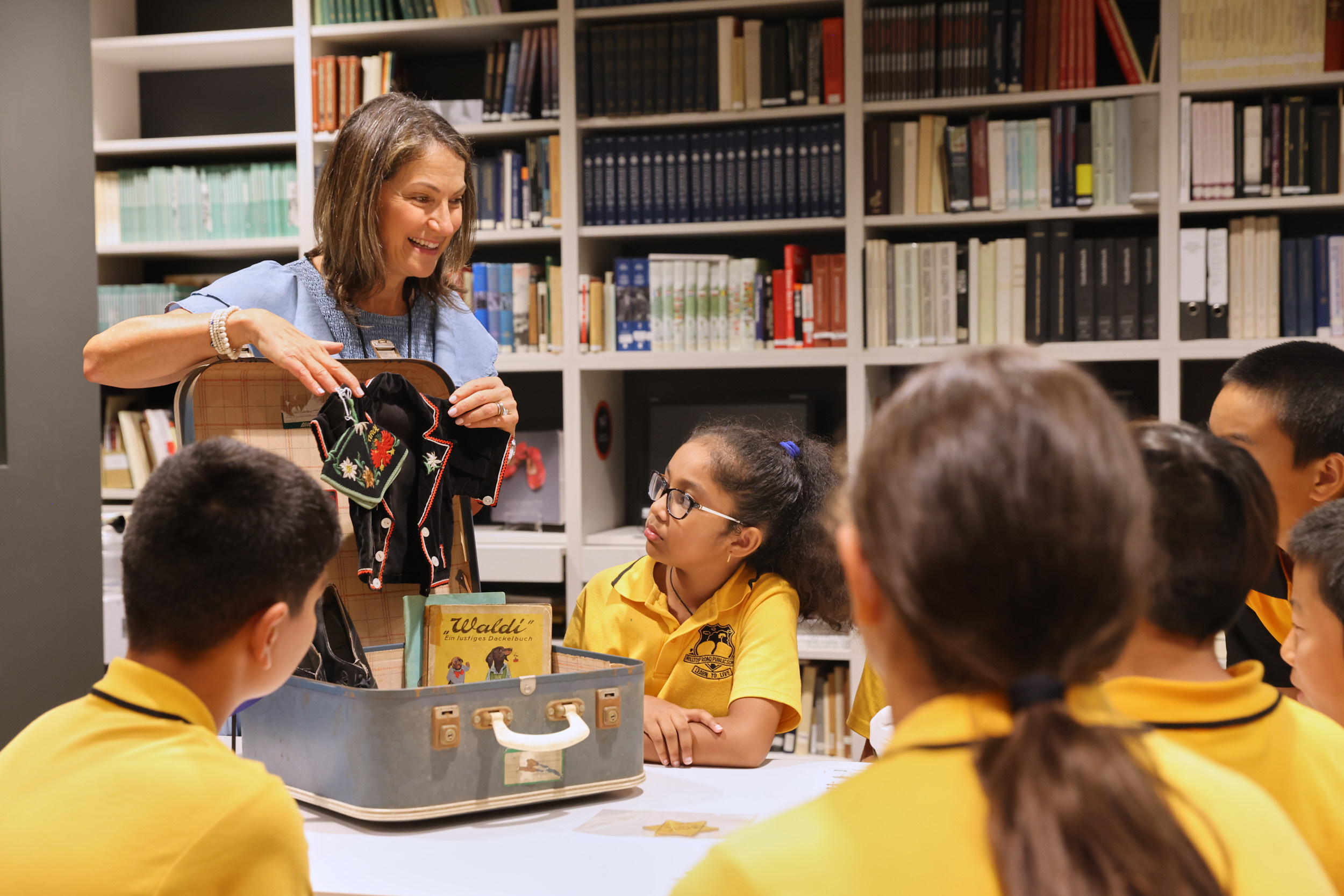Blog
January 20, 2025
In the shadow of Auschwitz and antisemitism in Australia
In a week’s time, on Monday 27 January, we commemorate 80 years since the Red Army liberated the Auschwitz concentration camp complex. 80 years after the horrors of the Holocaust, Jewish communities and those survivors who built new lives here after the war, are living through a new wave of Jew hatred that they never expected to see in their lifetime.
For Australia’s Jewish community, the past weeks have been overshadowed by acts of vandalism, violence and personal targeting that eerily hark back to the pogroms and actions against the Jews of Europe that led to the Holocaust.
Statements like ‘Hitler on top’ and ‘F**k the Jews’ graffitied on private property and synagogues have sought to intimidate Jewish people where they live, gather and worship. These violent attacks are painful reminders of past horrors.
Reflecting on this disturbing rise in antisemitic violence, Sydney Jewish Museum’s Head of Education, Sandy Hollis, says:
“What we understand about the history of antisemitism is what is playing out in our streets today is unique and has its roots in centuries-old stereotypes and tropes: beliefs that Jewish people are to blame for global politics, that they are conspiratorial, that they control the media. While these ill-founded beliefs might show up in new ways, they are all reflective of a unique, long history of scapegoating, defaming and discriminating of Jewish people for society’s perceived ills.
“Today we see a disturbing rise in division across our society and a fraying of our social fabric. Whilst we can pinpoint the conflict in the Middle East as the trigger for this recent surge in antisemitism, we can also be sure that a ceasefire won’t be a single salve. How deeply rooted Jewish hate is in this country is yet to be fully understood.”
In the face of this surge of antisemitic attacks, our Resident Historian Emeritus Professor Konrad Kwiet emphasises the role of education alongside the work of our politicians and community leaders:
“Holocaust history is one part of the solution to changing beliefs and behaviours. I believe that the most effective Holocaust education is that which builds critical awareness and reflective skills, in addition to knowledge of the historic events that took place. Underpinning history with an awareness of civic responsibilities and universal values is crucial to learn before one can understand the real societal consequences of specific events, like the burning of synagogues.”
In the shadows of next week’s significant anniversary and the recent hate crimes towards the Jewish community in Australia, Auschwitz survivor Yvonne Engelman OAM reflects:
“The 6 million who were murdered, including 1.5 million children, have to be commemorated because it is so important that this shall never happen again. I have come to the Museum for 32 years to teach and tell the young people how we were treated, with such hatred and indescribable conditions. I tell the young people to stand up, say “that’s wrong” and treat others they way you would like to be treated yourself.”


What’s On Newsletter
Keep up to date on all Museum events and exhibitions.